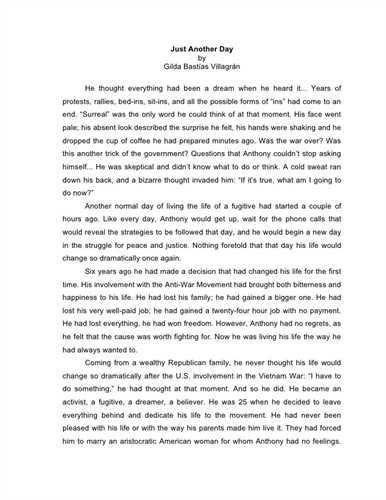Before you begin writing, you must decide how you will approach the interview. The introduction should begin with a key question based on the interviews that you conducted or a situation that inspired the question. For example, a story about a real or imaginary beggar may be a good way to start the essay. You may also choose to include statistics and questions for the interview itself. Listed below are some tips on how to write an interview essay.
Structure the information you have gathered from your interviewee
The process of writing an interview essay differs according to the format and subject. Some people collect information from personal statements or libraries while others record and write down the details of the interview. In either case, you must ensure that you structure the information you have gathered from your interviewee in an essay that will be easy to read and understand. Here are some tips to follow when writing an interview essay:
The introduction of your essay should inform your readers of the main question you are asking them. This can be tricky if you are trying to state a complex question in one sentence. Then, your body paragraphs should develop key ideas from your thesis statement and prove them. Make sure that each body paragraph supports your main idea and thesis statement. Avoid using extreme views. You should avoid straying from your topic and maintain a precise structure.
Using powerful adjectives and verbs to describe the interviewee
There are a few important guidelines for writing a powerful biography, and they vary by company culture. Be honest about your accomplishments and don’t try to downplay your qualities. A positive impression can only come from genuine qualities, not self-centered boasting. Your biography should have no more than three powerful words to describe the interviewee. Keep in mind that the tone of the biography should reflect the type of job you’re applying for, as well as the company culture. If you’re applying for a casual job, consider using a more casual tone, while serious words are appropriate for a high-level position.
Make the best use of adjectives and verbs to describe the interview candidate. Adjectives that describe your personality can be effective. Interviewers look for these words to discover how you behave with others and how well you fit in with the company’s values. Ensure that the adjectives are positive and truthful, without exaggerating your strengths. The interviewer wants to see you in your best light, so make sure you use them correctly.
Using a thesis statement
A thesis statement is an important part of an interview essay. This statement explains the purpose of the essay and can be used to frame the rest of the paper. An interview essay might also follow a predetermined format, such as presenting a wide-ranging problem or presenting an opinion on a specific topic. In this case, the thesis statement should be clear and concise. The body of the essay should develop key ideas from the thesis statement and present the interview in detail.
A good essay outline consists of an introduction, a thesis statement, a body, and a conclusion. Using the outline, the writer can make an organized essay with all the necessary components. An interview essay outline should be clear, and can include the interviewee’s name and the reason for the interview. A conclusion should summarize the information presented in the essay. Using a thesis statement is also an effective way to show readers how the information is organized.
Citing sources in an interview essay
In your essay, you should cite the sources you have used for the interview. This can be done in a variety of ways, such as through email, telephone, or in person. When citing an interview, you should follow the “container” system, which includes nine core elements of MLA style citations. Below, we’ll discuss three types of interview citations and how to properly cite them.
Emails from research participants should be cited in the text as an interview source, not a reference list. Class lectures and personal communications should be cited in the text. The author should be acknowledged. You must give credit to the interviewee in the reference list. When citing sources in an interview essay, make sure to include the date and place of the interview. To make it easier for readers to find the information they need, you can also include an identifying note in the body of the text.
Using a hook
A good hook is something that grabs the reader’s attention. Whether you want to share a funny story or data about women’s participation in the labor force, you must use a credible source to make sure that the data is correct. A hook can spark your reader’s interest in learning more about the topic. A simple example would be the U.S. Bureau of Labor Statistics, which projects that women will continue to decline throughout this decade.
A good hook is a brief anecdote about the subject or person you are interviewing. It should capture the essence of the main idea of the essay and serve as a microcosm of the essay to follow. For instance, a story about an interviewee’s first speech as the student council president should focus on the person’s determination and leadership qualities. Once the reader has been hooked, use a powerful adjective to describe his passion.

